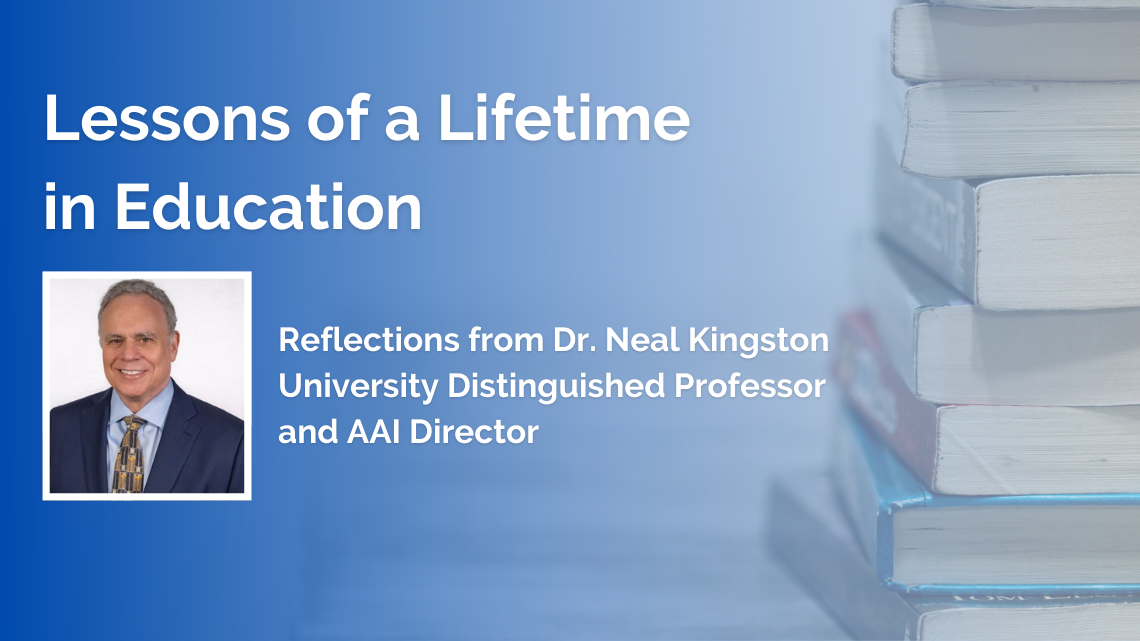Engage! Lessons of a Lifetime in Education
Engage!
“They say I gotta learn, but nobody’s here to teach me. If they can’t understand it, how can they reach me?” — Coolio, 1995
Coolio wasn’t the first to note that if a teacher can’t make lessons relevant, can’t reach students, those students will not learn. The same issue exists when students take tests to which they can’t relate or are otherwise disengaged. Three anecdotes served to teach me this lesson.
In 1993, while I was Associate Commissioner of Education in Kentucky, some parents vociferously complained that the state assessment based on constructed-response items was highly inaccurate because their child’s score was not what they expected, according to either their general expectations or other test scores, in particular the ACT. Some quick research showed that many of these parents were right! A look at their test papers showed these students had produced no responses, half-hearted responses, or scatological responses. These students had not engaged as intended with the test.
Some years later, when I was a vice president at Measured Progress, the state of New Hampshire faced similar concerns regarding a lack of student engagement on their mostly multiple-choice examinations for which student answers were indicated by bubbling in answer sheets. We created a school index of student engagement based on the percentage of students whose response patterns indicated a lack of engagement. For example, a student might have chosen A for every response option, filled in the answer sheet with a zigzag of bubbles, or, my favorite, filled in the bubbles to suggest a Christmas tree. These patterns were uncommon for elementary school children — maybe 1%–2% of students — but more common for middle school students, 3%–5%, and around 10% for high school students.
Later, in Kansas, we were developing the Dynamic Learning Maps® Alternate Assessment — a test for students with significant cognitive disabilities. We were almost ready to go live and were thinking of various ways to lighten teachers’ administration burden. Many of the mathematics items required physical manipulatives to make the content accessible. We were considering creating a kit of standard manipulatives that schools could purchase so they would not need to gather materials themselves. Before moving that idea forward, we met with teachers to gather feedback.
One group of educators was clear and strong in their desire for us to NOT provide a standardized set of manipulatives. We were discussing the use of counting beads when one teacher described one of her students who was on the autism spectrum. This student was fascinated by doorknobs but would usually not attend to other objects in a classroom setting. If objects were to be counted or grouped, this student would be able to demonstrate knowledge only if the objects were doorknobs. Different students who were similarly impacted by autism might have different objects that would optimize their ability to demonstrate their knowledge.
Those of us who create tests must take it upon ourselves to maximize student engagement during the testing experience or tests scores will be inaccurate and misleading. Gamification and personalization are among the approaches that need to more research.
What do you think?
**
Neal Kingston, Ph.D., is a University Distinguished Professor in the department of Educational Psychology at the University of Kansas, in which he also serves as the Director of Graduate Studies and Director of the Achievement and Assessment Institute (AAI). His research focuses on large-scale assessment, with particular emphasis on how it can better support student learning through the use of learning maps and diagnostic classification models. He has served as principal investigator or co-principal investigator for over 180 research grants. Of particular note was the Dynamic Learning Maps Alternate Assessment grant from the US Department of Education, which was at that time was the largest grant in KU history and which currently serves 21 state departments of education. Other recent testing projects include the Kansas Assessment Program, Career Pathways Collaborative, and Adaptive Reading Motivation Measures.
Learn more about Dr. Kingston here.
